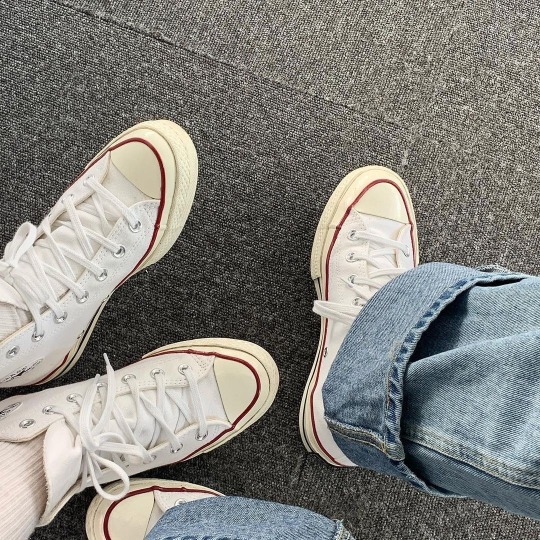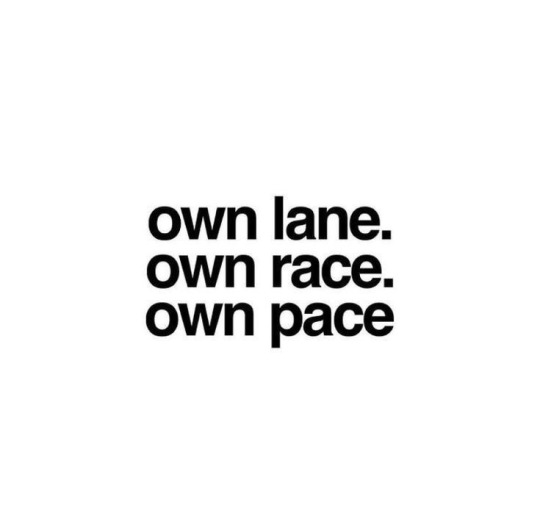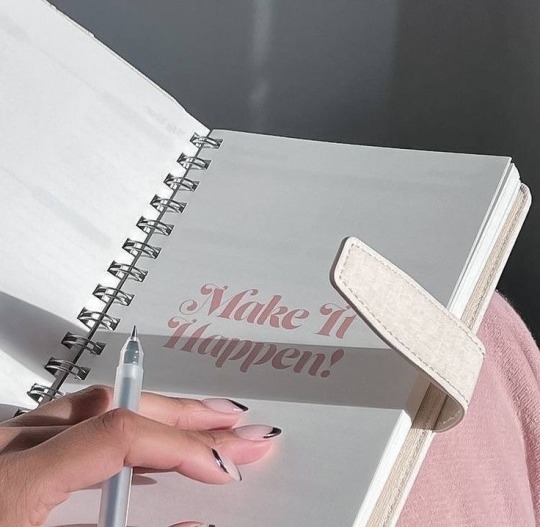#self awareness
Text



instead of focusing on what’s out of your possibilities, focus your energy on things you can control:
how you treat yourself and your body
how you react and treat people
how and where you spend your money
where you give your time, attention and energy
the people and environments you surrender yourself with
what you do in your lazy time
how you express yourself and your thoughts
what you consume online
what you commit yourself to
your hobbies and interests

#self love#self care#self help#wonyoungism#just girly things#femininity#green juice girl#pink pilates princess#self improvement#positive thoughts#positivity#spilled words#mental health#healing#positive mental attitude#divine feminine#that girl#it girl#glow up#level up#dream girl#dream life#self awareness#self respect#self growth#daily reminder#mental growth#girlblogging#glow growth girlboss
83 notes
·
View notes
Text
REBRANDING YOURSELF



COLLAB WITH THE HOTTIE????!!!!!!! @honeytonedhottie. LMAO NOT US PLANNING THIS IN LIKE DEC THEN RELEASING IN APRIL. I luv you so much ur my fav moot. moots who collab together, stay together. Check out her post on her page too, as usual, she makes the best points so y'all better listen.
Rebranding is a process in which you redefine who you are and how others perceive you. Each journey of rebranding yourself is personal and individual. When you rebrand yourself, you further align yourself with your higher you. This post is a guide to getting started on your journey!
UNDERSTAND YOUR CURRENT SELF.
So, take a step back and think about who you are as an individual right now. What are your values and beliefs? Does your external self reflect your inner self? Are you comfortable in your current environment?
These questions and more will help to see which aspects of your life you may need to redefine. See if there’s anything that doesn’t align with your higher self.
After that, pick those aspects that need to be redefined. Why do you want to change this? How has this been impacting you internally/externally? Does this aspect stem from your environment or yourself? See why this aspect needs to be improved.
DESIGNING YOUR BRAND
This is more of a fun step! So, using your aspects design how you want that specific thing to look and feel like. Avoid being vague or non-specific. Try to put in as much detail as you can for each aspect.
If you’d prefer, you don’t have to use ‘aspects’ and instead use your life generally. This is your redesign, so do whatever is more comfortable and achievable for you.
ASPECTS
Health
Social life
Career
Hobbies
Family
Finance
Spirituality
Personal development (mindset, goals, improvement)
Self care
Culture
Well-being
Things to include
Achievable goals
How your environment looks like
How your daily life like
How you see yourself
What do you feel after
Why this is alignment within yourself?
You can do this any way you want. The one I would recommend for redesigning your life would be a vision board, preferably a physical one. If you don’t want to do that, there are still a lot of options such as writing it down into a pretty poster, creating a playlist that will reflect your brand, creating a pretty list, or having sticky notes around your room as reminders.
Be creative and detailed with this. You should spend at least an hour if not more trying to redesign your life/aspects.
CREATING GOALS
Goals are so important, especially when we are moving in a different direction than we were before. As we’ve got the current status of who we are and what we want to be, creating goals should be easy.
Make your goals visible. Put a sticky note on your mirrors, put it as your laptop background, put a reminder on your phone, listen to a playlist that motivates you of your goals or anything else that will constantly remind you of your goals.
Other than that, remember that goals have to be achievable, mindful, and flexible.
ESTABLISHING HABITS
Habits are so important to rebrand yourself. Habits make up your identity. The way you act, speak, and do daily, can subconsciously influence you to be someone who isn’t in alignment with your higher self.
As much as it’s important to establish new habits that align with you, you have to root out the habits that are pushing you off track from achieving your goals.
The good thing is that you can do both at the same time. Replace those old habits, with brand new ones. For example, when you open your phone first thing in the morning instead of opening up TikTok, get YouTube opened and start a 5-minute meditation to start your day.
However, just because a habit is beneficial for you, it doesn’t mean it is in alignment for you. For many people, they prefer to read books as a productive alternative for leisure, however, you may not be able to read a book and focus. In that case, you may want to watch an educational video instead. You’re still getting the benefits, but just in a different way.
STEP FIVE: IMPLEMENTING YOUR BRAND DAILY
Think about all the little details of how this person would act, from morning until night. Embody their actions, words, aura, and vibes. This is when having a visual of your goals is good, so you can see what you need to do.
This includes no longer indulging in things your higher self wouldn’t do. Regardless of how much comfort, entertainment, or dopamine something gives you, you have to let it go if it is destroying your mind.
I way I recommend implementing your brand daily by creating a daily routine that focuses on a different goal each day of the week. E.g:
Monday - Practicing being mindful (meditation, journaling, connecting with your religion)
Tuesday - Fitness (pilates, weightlifting, hot girl walks)
Wednesday - Socialising (going out to meet new people/connecting with old friends)
Thursday - Productivity (Schoolwork, studying, business, workplace tasks)
Friday - Self-care (taking a slow day however you’d like)
ta-daa!! thanks 4 reading. now go follow @honeytonedhottie 💕😍
#becoming that girl#prettieinpink#that girl#green juice girl#clean girl#honeytonedhottie#that girl lifestyle#it girl energy#glow up#wonyoungism#that girl energy#that girl routine#it girl tips#it girl#pink pilates princess#pink pilates girl#self improvement#self care#self confidence#self development#self growth#self healing#self love#healing#healing journey#self awareness#gratitude#self reflection#self compassion#growth mindset
50 notes
·
View notes
Text
When are therapists gonna understand we can be self aware? Are they really gonna die on the hill that states it’s impossible for a narcissist to know and accept what they are? I lack empathy, not basic cognitive skills. Even intellectually disabled people can know they’re intellectually disabled.
This awareness they think we’re incapable of is the type of awareness living beings have intrinsically. It’s fucking basic awareness of information and the ability to compare. This red strawberry looks just like the other red strawberry, so 4-year-old-you matches them together on your little tablet game.
Yes, I can comprehend why I would be labeled as a narcissist. I’m mentally capable of understanding how I fit the description, and I’m mentally and emotionally capable of accepting new information I learn about myself.
What I don’t understand is how the psychiatric industry can be messed up enough for a LICENSED PSYCHIATRIST to believe someone can lack an intrinsic skill that LITERALLY COMES WITH BEING CONSCIOUS like what the actual hell?!?!??!!?
#flashy ✨ vent#flashy ✨ thoughts#cluster b#actually cluster b#npd#actually npd#actually narcissistic#narcissistic personality disorder#cluster b safe#npd safe#npd stigma#self awareness#ableism#psychiatry#psychiatric ableism#tw caps
43 notes
·
View notes
Text

#LIFE QUOTES#QUOTES#THOUGHTS#WORDS#WRITING#INSPIRING QUOTES#SPILLED WORDS#SPILLED INK#SPILLED THOUGHTS#PANDORA OWL#MY WRITING#FEELINGS#MINDSET#SELF REFLECTION#SELF CARE#SELF EMPOWERMENT#MENTAL HEALTH#MENTAL WELLNESS#SELF AWARENESS#STRUGGLE
33 notes
·
View notes
Text
Abilities that will forever benefit you
The ability to walk away
The ability to manage your time
The ability to remain consistent
The ability to self analyze
The ability to learn how to learn
The ability to understand others
The ability to listen
The ability to express your thoughts and feelings
The ability to break down tasks
The ability to adapt
The ability to control your mind
The ability to ask for help
The ability to act upon facts not feelings
#inspiration#self love#motivation#self care#self help#self improvement#glow up#becoming that girl#glow up era#manifesation#self confidence#self development#self awareness#positive mindset#self growth#growth mindset#gratitude#personal growth#girlblogging#mindset
10K notes
·
View notes
Text

#quotes#self love#love#self discovery#self healing#inspirational quotes#self help#self awareness#inspiring quotes#life quotes#recovery quotes#recovery#believe
8K notes
·
View notes
Text
Green Flags in Communication 💚💬
"I want to know when I hurt your feelings."
This shows they are willing to understand and acknowledge the impact of their actions.
"I don't want you to feel alone in this."
This shows empathy and indicates that the person is supportive and does not want the person to deal with issues alone.
"I've been struggling with ___”
This demonstrates vulnerability and trust, as the person is open about their struggles.
"How have you been feeling about ___? I know it's been on your mind a lot."
This shows concern for the other person's issues or worries, showing that they are listening and care about what's important to the other person.
"I feel __ when you __; are you open to trying __ next time?"
This is an example of constructive communication.
"What do you need from me when this happens with your family?"
This shows awareness and sensitivity to the persons family dynamics and a willingness to provide support.
"I appreciate when you ___.”
Expressing appreciation is vital for positive reinforcement and acknowledging the efforts and qualities of the other person.
"I didn't handle that well."
This is a sign of self-awareness and accountability, recognizing one's own mistakes and being open to learning and growth.
"I'm sorry, I was wrong to say that. I'll try to be more mindful in the future."
Shows you are able to apologize genuinely and a commitment to improving behavior.
"Tell me more about that; I'm really interested in hearing your perspective."
Indicates a genuine interest in the other person's thoughts and feelings.
"I noticed you seemed a bit off today. Is everything okay?"
It shows you are attentive to the other person's emotional state and a readiness to provide support.
"I'm here for you, no matter what you need."
Offers unconditional support, creating a sense of security in the relationship.
"I love how passionate you are about your hobbies. It's inspiring to see."
Expresses admiration for the other person's interests.
"Let's work on a solution together. What do you think would be fair?"
Focusing on collaboration rather than conflict.
"I trust your judgment on this."
Trust and respect for the other person's decision-making abilities.
"Your happiness is important to me. Let's make sure you're taking time for yourself."
Prioritizes the other person's happiness and emphasizes the importance of self care.
"It's okay to feel that way. Do you want to talk about it more?"
Validates the other person's feelings.
"I appreciate how you handled that situation. You're really good at ___."
Praises specific strengths or skills, boosting the other person's self-esteem.
"I know we disagree, but I respect your point of view."
Acknowledges differences in opinion while still maintaining respect and understanding.
#communication#personal improvement#personal growth#personal development#self help#self awareness#self reflection#self improvement#healthy relationships#relationship advice#relationships#green flags#emotional intelligence#healthy relationship#health and wellness#mental wellness#mental health#level up journey#glow up tips#glow up#positive mindset#growth mindset
4K notes
·
View notes
Text
me going into hibernation when it's time to recharge my social battery

#positivity#positivity blog#self love#self care#self healing#self growth#self awareness#self esteem#mental health#mentally exhausted#mentally drained#mental illness#recharge#social battery#introvert#relatable#healing#recovery#inner work#inner thoughts#inner child#inner healing#inner strength#invisible illness#light academia#classic academia#romantic academia#dark academia#light academia aesthetic#chaotic academia
18K notes
·
View notes
Text
Femme Fatale Guide: Game-Changing TED Talks Everyone Should Watch
"How Five Simple Words Can Get You What You Want" by Janine Driver
"Master your Mindset, Overcome Self-Deception, Change your Life" by Shadé Zahrai
"How to talk to the worst parts of yourself" by Karen Faith
"Think before you speak, hacking the secret of communication" by Catherine Molloy
"The Hidden Code For Transforming Dreams Into Reality" by Mary Morrissey
"Don't Believe Everything You Think" by Lauren Weinstein
"The public speaking lesson you never had" by DK
"Programming your mind for success" by Carrie Green
"How to stop screwing yourself over" by Mel Robbins
"Own Your Behaviours, Master Your Communication, Determine Your Success" by Louise Evans
"The psychology of seduction" by Raj Persaud
"Why we're unhappy -- the expectation gap" by Nat Ware
"Think Fast. Talk Smart" by Matt Abrahams
"Increase your self-awareness with one simple fix' by Tasha Eurich
"5 steps to designing the life you want" by Bill Burnett
"Staying stuck or moving forward" by Dr. Lani Nelson Zlupko
"To reach beyond your limits by training your mind" by Marisa Peer
"Emotional laws are the answer for better relationships" by Diana Wais
"Feelings: Handle them before they handle you" by Mandy Saligari
"Cultivating Unconditional Self-Worth" by Adia Gooden
#ted talks#youtube recommendations#self love#cult of personality#self awareness#self reflection#self improvement#communication skills#social skills#life advice#life skills#girl advice#dream girl#girl talk#femme fatale#dark femininity#dark feminine energy#it girl#high value woman#the feminine urge#female power#queen energy#female excellence#high value mindset#self esteem#level up journey#glow up#femmefatalevibe#success mindset#self talk
7K notes
·
View notes
Text



listen to your heart! journaling ideas
emotional check-in: write about your current feelings. no judgment, no editing, no need to be aesthetically pleasing, just let your heart be free so you can understand what’s truly going on.
core values: list your core values and how they align with your decisions and choices you make. are you staying true to these values?
dreams and ambitions: be specific and detailed about what you desire, no matter how big or small. consider why you have these dreams, how important they are and how they make you feel.
barriers: journal about the barriers you find that are stopping you from following your heart. can they be owned or outlined? are they impossible to move? what can you do to achieve something similar?
heart healing: think about the time when your heart was broken (not only romantically). write about the experience and how you healed or about your ongoing healing. what lessons did you learn from that?
letters from the heart: write a letter to yourself or someone else about what you’ve been holding back. will you write about love, forgiveness, angriness or some truth?
heart vs head: explore a decision where your heart and head were in conflict. how did you solve the problem? were you satisfied?
gratitude: list things that you’re deeply grateful for. focus how each one touches your heart and the emotions you feel towards them.

#journaling#dear diary#self help#self improvement#self care#self love#wonyoungism#pink pilates princess#positivity#healing#girlblogging#just girly things#coquette#lana del rey#dolette#positive thoughts#be kind to yourself#do it for yourself#mental health#healing journey#that girl#it girl#dream girl#pinkcore#positive vibes#positive mental attitude#self awareness#self respect#self growth#positive thinking
71 notes
·
View notes
Text
and if today was rough for you, i am proud of you.
and if you suffered today silently, i am proud of you.
and if you struggled with eating but you still ate, i am proud of you.
and if you were not happy for your body but you let it exist in the peace, i am proud of you.
whatever happened today good or bad, whatever you felt today - i am still very much proud of you, please keep going my friend, i love you.
#random thoughts#positive#one step at a time#positive user#daily reminder#positive attitude#self healing#positive reminders#gentle reminder#random#healing#healingjourney#mental health#health#hope#mind#self awareness#note to self#positive self talk#self acceptance#self care#self care reminder#self compassion#self discovery#self esteem#self growth#self help#self improvement#self love#self worth
3K notes
·
View notes
Text
We are all mirrors of each other...
literally 🪞

Don't cling to others' opinions.
They don't even represent the truth of things.
✨
Many times the people we deal with are dealing with THEIR OWN PROJECTIONS, they are not even looking at us for who we are. And we do the same with others.
And reading about this, recognizing this, is so important, because then we stop projecting our own disorganized things onto others, as well as stop receiving so openly the projections of people as absolute truths of life.
How much of your opinions about others doesn't exactly reflect your view of them, but rather what you feel about yourself when looking at them? Some examples.
Examples:
The person who is already in their adulthood and who specifically has the frustration of not having lived their dreams, not having pursued something that fulfilled them, for various personal reasons of theirs.
It is something that calls for healing and harmonization of this, so that the person does not live with this unhappiness within themselves. However, many of us do not have the habit of reflecting on how much our past impacts our present, and neither on how much we have our baggage disorganized that we reflect onto others the who-o-le time.
So, the person in the example, older, and who has this specific issue of frustration, sees a young adult being independent, chasing their dreams.
Whenever dealing with a young person who reminds them of this, their ego immediately confronts with the information of "I wished I was living this", and this being's energy shifts to a position of envy, and sometimes it can even seek to harm the other person by inventing stories, distorting the other's independence into arrogance, gossiping, and so on.
And the "crazy" thing is that, believe it or not, this being tells themselves that they are doing this for reasons they invent for themselves ("this person is arrogant, look at them, all independent!") when, in reality, it is they who are constantly feeling uncomfortable with the strong and independent presence of the other. Low self-esteem and comparison, which unfortunately lead to envy.
The young person, in the example's case, doesn't need to say anything to the person for this to be triggered, because the ego, which is the primary channel through which we tend to have contacts with others, captures this information.
The ego will capture, will know that it is something that needs to be compensated internally but that the person, out of pride, out of ignorance, out of disinterest, out of stagnation, or whatever, did not run after correcting.
Knowing this, the ego, which has important functions for our psychic structure, but will always depend on how its "owner" conducts it, will deal with envy, as this is the way the person deals with things they receive from their surroundings and that "hit" them in the mirror effect, since, in reality, we all serve as mirrors to each other. All the time (and it was supposed to be a good thing, but the way we deal with it makes it bad).
The human ego is important,
but not the end of everything.
It is only a part of the mind's structure. It is limited, but it exists so that the human being, with their current limitations, deals little by little with what they can from the exchanges they make.
The conscious mind is limited. The unconscious, infinite (and we are more than 80% made of unconscious mind!).
The ego is the most active part in us, but it is not the only one that exists.
And so there is an axis to be activated, which is the Ego-Self axis, so that every human being knows that the place of the Ego is the place of support to live the moment, to deal with the moment.
The Ego is like a filter for consciousness to support and live. But it's not the end.
Therefore, not everything your conscious mind says is real.
The "conscious" mind needs to be refuted and reviewed by yourself, because it PROJECTS itself all the time, it is always in contact with others and taking to others what is uniquely its own (especially unresolved things, but also good things), as well as always bringing in what others say.
And if so, and if the Ego is in the part of consciousness but it is limited, does not reflect everything, it needs to be refuted. So that our mental life is healthier and truly conscious, in the pure and true sense of the word.
In the example, the person who is envying lacks independence and confidence to follow their own path internally, they are absent from it, it is something they know they do not have within them but that for their own well-being and dream, it would be important to have (after all, the more we live our lives in integrity, seeking to be and live more sides of ourselves, less restricted, limited, we will be, and your consciousness, deep down, knows this 🙌🌟).
Another important point to mention is: On the other side, if it is a person with traits of fear of judgment, fear of exclusion, this situation will negatively fit, making the being who is envying seem so right and the one who is afraid of judgment, feels down. It is important to take care of this to avoid further internal issues.
If you identify that someone is projecting onto you in a very negative way, step back, take care of it in yourself and let the other's internal work be their own. But, although difficult, avoid the issue of anger and revenge. This will keep you in this process longer than necessary.
Both people need help,
in the first case, for having a deep low self-esteem to the point of letting this splash onto others;
in the second case, for having a root of fear of judgment and fear of not pleasing others, which leads them to believe that the harshest and most negative criticisms that arise from people reflect reality.
Another example:
A woman who denies the experience of her feminine side in integrity (the issue of sexual self-awareness, for example) by conditioning herself to some kind of intense restriction, and who also experiences the difficulty of, when looking at any woman who does not do the same as her, judges, but it is not just any judgment, but rather a categorization and labeling, because for her the wound with the experience of other sides of her femininity is so limited, and, because she keeps denying this to herself, the anger at those who live in freedom arises and increases whenever she encounters such a person.
It is important for both sides to take care of this, the first, who is emanating and projecting, the second, so that their internal difficulties with fear of judgment or something similar, do not increase.
Everything can be reversed into an opportunity for healing!
Heal, heal, heal, still and especially if the person has come, in malice, because of their projection, to hurt me.
These are just some of the various examples we could give to illustrate how our opinions about others and the opinions they give are not always what things really are.
Don't cling to others' opinions.
They don't even represent the truth of things.
Many times the people we deal with are dealing with THEIR OWN PROJECTIONS, they are not even looking at us for who we are. And we do the same with others.
And reading about this, recognizing this, is so important, because then we stop projecting our own disorganized things onto others, as well as stop receiving so openly the projections of people as absolute truths of life.
#writings#writers on tumblr#my writing#writers#writeblr#fears#fear of judgment#fear of abandonment#ego#psyche#human mind#self improvement#self development#self help#self reflection#self care#self awareness#self healing#spiritual awareness#projections#psychologycal projections#archetypes
22 notes
·
View notes
Text

#LIFE QUOTES#QUOTES#THOUGHTS#INSPIRING QUOTES#SPILLED WORDS#SPILLED INK#MOTIVATING QUOTES#SPILLED THOUGHTS#PANDORA OWL#MOTIVATION#MY WRITING#FEELINGS#MINDSET#SELF REFLECTION#SELF EMPOWERMENT#MENTAL WELLNESS#VULNERABLE#MISTAKES#SELF AWARENESS#STRUGGLE#CONSISTENCY
20 notes
·
View notes
Text
Small ways to activate your "happiness" chemicals
DOPAMINE: the reward chemical
• Complete a task
• Doing self care activites
• Eating some food
• Celebrating your little wins.
OXYTOCIN: the love hormones
• Playing with a dog
• Playing with a baby
• Holding hands
• Hugging someone
• Giving someone else a compliment
SEROTONIN: the mood stabiliser
• Meditating
• Running
• Be in the sun
• Walk in nature
• Swimming
ENDORPHIN: the pain relief
• Laughing exercises
• Essential oils
• Eating dark chocolate
• Running
#inspiration#self love#motivation#self care#self help#self improvement#glow up#becoming that girl#glow up era#manifesation#self confidence#self awareness#self development#personal growth#self growth#growth mindset#growth#positive mindset
8K notes
·
View notes
Text
Don't sabotage your future peace because familiar chaos is comfortable.
#quotes#quote#therapy#trauma#mental health#mentalhealth#mental health matters#mentalhealthmatters#mental health awareness#mentalhealthawareness#personal growth#personalgrowth#self love#selflove#self awareness#selfawareness#peace#chaos#protect your peace#healing
3K notes
·
View notes
Text
How To Become A Brand New Person ✨✨
Self Reflect:
Journal daily.
Think about past decisions and how they impacted your life.
Meditate regularly.
Create a vision board to visualize your goals.
Review your strengths and weaknesses.
Identify your core values and beliefs.
Figure out your passions and interests.
Think about your childhood dreams and aspirations.
Evaluate your current state of happiness and fulfillment.
Set Clear Goals:
Define specific career goals, like "Get promoted within two years."
Set health goals, like "Lose 20 pounds in six months."
Create financial goals such as "Save $10,000 for a vacation."
Establish personal development goals, like "Read 24 books in a year."
Set relationship goals, such as "Improve communication with my partner."
Define education goals, like "Complete a master's degree in three years."
Set travel goals, like "Visit five new countries in the next two years."
Create hobbies and interests goals, such as "Learn to play a musical instrument."
Set community or volunteer goals, like "Volunteer 100 hours this year."
Establish mindfulness or self-care goals, such as "Practice meditation daily."
Self Care:
Exercise for at least 30 minutes a day.
Follow a balanced diet with plenty of fruits and vegetables.
Prioritize getting 7-9 hours of quality sleep each night.
Practice in relaxation techniques like deep breathing or yoga.
Take regular breaks at work to avoid burnout.
Schedule "me time" for activities you enjoy.
Limit exposure to stressors and toxic people.
Practice regular skincare and grooming routines.
Seek regular medical check-ups and screenings.
Stay hydrated by drinking enough water daily.
Personal Development:
Read a book every month from various genres.
Attend workshops or seminars on topics of interest.
Learn a new language or musical instrument.
Take online courses to acquire new skills.
Set aside time for daily reflection and self improvement.
Seek a mentor in your field for guidance.
Attend conferences and networking events.
Start a side project or hobby to expand your abilities.
Practice public speaking or communication skills.
Do creative activities like painting, writing, or photography.
Create a Support System:
Build a close knit group of friends who uplift and inspire you.
Join clubs or organizations aligned with your interests.
Connect with a mentor or life coach.
Attend family gatherings to maintain bonds.
Be open and honest in your communication with loved ones.
Seek advice from trusted colleagues or supervisors.
Attend support groups for specific challenges (e.g., addiction recovery).
Cultivate online connections through social media.
Find a therapist or counselor for emotional support.
Participate in community or volunteer activities to meet like minded people.
Change Habits:
Cut back on sugary or processed foods.
Reduce screen time and increase physical activity.
Practice gratitude by keeping a daily journal.
Manage stress through mindfulness meditation.
Limit procrastination by setting specific deadlines.
Reduce negative self-talk by practicing self-compassion.
Establish a regular exercise routine.
Create a budget and stick to it.
Develop a morning and evening routine for consistency.
Overcome Fear and Self Doubt:
Face a specific fear head-on (example: public speaking).
Challenge your negative thoughts with positive affirmations.
Seek therapy to address underlying fears or traumas.
Take small, calculated risks to build confidence.
Visualize success in challenging situations.
Surround yourself with supportive and encouraging people.
Journal about your fears and doubts to gain clarity.
Celebrate your accomplishments, no matter how small.
Focus on your strengths and accomplishments.
Embrace failure as a valuable learning experience.
Embrace Change:
Relocate to a new city or country.
Switch careers or industries to pursue your passion.
Take on leadership roles in your workplace.
Volunteer for projects outside your comfort zone.
Embrace new technologies and digital tools.
Travel to unfamiliar destinations.
Start a new hobby or creative endeavor.
Change your daily routine to add variety.
Adjust your mindset to see change as an opportunity.
Seek out diverse perspectives and viewpoints.
Practice Gratitude:
Write down three things you're grateful for each day.
Express gratitude to loved ones regularly.
Create a gratitude jar and add notes of appreciation.
Reflect on the positive aspects of challenging situations.
Show gratitude by volunteering or helping others in need.
Send thank-you notes or messages to people who've helped you.
Keep a gratitude journal and review it regularly.
Share your gratitude openly during family meals or gatherings.
Focus on the present moment and appreciate the little things.
Practice gratitude even in times of adversity.
Be Patient:
Set realistic expectations for your progress.
Accept that personal growth takes time.
Focus on the journey rather than the destination.
Learn from setbacks and view them as opportunities to improve.
Celebrate small milestones along the way.
Practice self-compassion during challenging times.
Stay committed to your goals, even when progress is slow.
Keep a journal to track your personal growth.
Recognize that patience is a valuable skill in personal transformation.
Celebrate Small Wins:
Treat yourself to your favorite meal or dessert.
Reward yourself with a spa day or self-care activity.
Share your achievements with friends and loved ones.
Create a vision board to visualize your successes.
Acknowledge and congratulate yourself in a journal.
Give yourself permission to take a break and relax.
Display reminders of your accomplishments in your workspace.
Take a day off to celebrate a major milestone.
Host a small gathering to mark your achievements.
Set aside time to reflect on how far you've come.
Maintain Balance:
Set clear boundaries in your personal and work life.
Prioritize self care activities in your daily routine.
Schedule regular breaks and downtime.
Learn to say "no" when necessary to avoid overcommitment.
Evaluate your work life balance regularly.
Seek support from friends and family to avoid burnout.
Be kind to yourself and accept imperfections.
Practice mindfulness to stay present and grounded.
Revisit your priorities and adjust them as needed.
Embrace self love and self acceptance as part of your daily life.
#personal improvement#personal development#personal growth#self help#self awareness#self reflection#self improvement#level up journey#self love journey#dream girl guide#dream girl journey#dream girl tips#becoming that girl#that girl#it girl#glow up tips#glow up#clean girl#pink pilates girl#divine feminine#femininity#femme fatale#feminine journey
6K notes
·
View notes